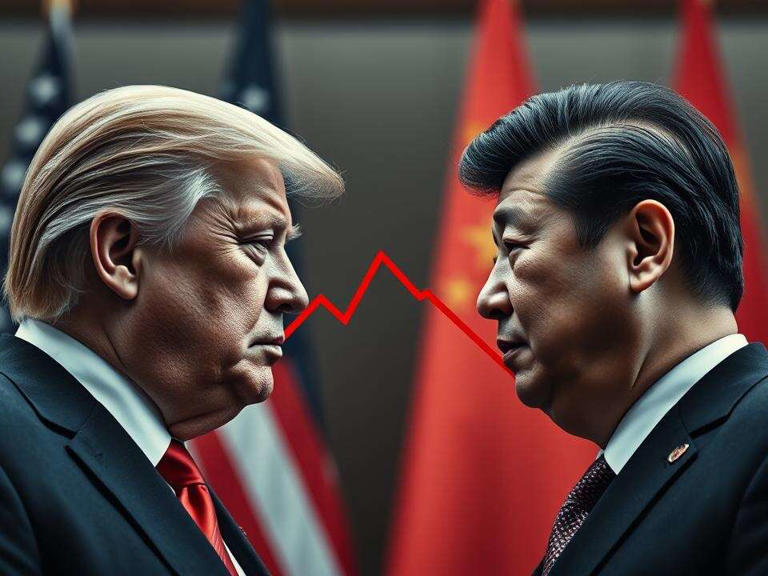
Trump Signals Trade Shift: Willing to Lower China Tariffs for a Fair Deal! 2025
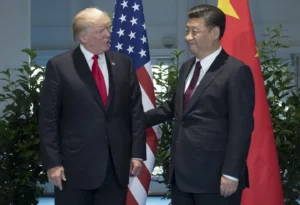
Overview
Unexpectedly US President Donald Trump has indicated that he is open to reducing tariffs on China which could signal a change in the current trade dispute between the two biggest economies in the world. Following months of rising tariffs that have had a major effect on world markets and strained Washington-Beijing economic ties the announcement was made.
According to Trump’s comments the administration is amenable to renegotiating trade terms as long as the agreement is “fair” and advantageous to US companies. However what does this signify for the future of trade relations between the United States and China? Let’s examine the specifics.
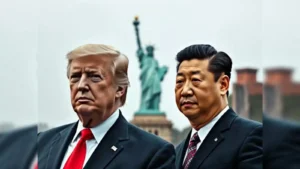
Is the Tone of Trump’s Statement Changing?
Trump admitted that the current high tariffs which can reach 145% on Chinese imports have essentially stopped trade between the two countries during an interview on NBC’s Meet the Press. “At some point I’m going to lower them because otherwise you can’t do business with them—and they want to do business very much ” he said.
His prior hardline position in which he maintained that China had been “ripping off” the US for years has significantly changed from this. In order to safeguard domestic industries and lessen dependency on Chinese imports the tariffs were first put in place as part of his “America First” policy. But as a result of the economic fallout—increasing expenses for producers and consumers—businesses and policymakers are becoming increasingly concerned.
China’s Reaction: Assessing Trade Discussions
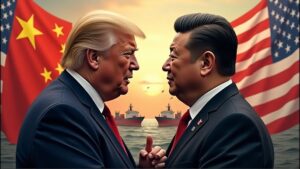
China’s commerce ministry said in a statement that Beijing is considering the possibility of trade talks in response to Trump’s comments. Since the most recent round of tariffs was implemented last month this is the first indication of China’s openness.
Chinese officials have however stated unequivocally that any negotiations must be founded on justice and respect for one another. In response to US tariffs Beijing has halted purchases of US agricultural products restricted exports of important minerals and imposed 125% duties on American imports.
“If the US side wants to talk it should be sincere and ready to correct wrong practices including cancelling the unilateral imposition of tariffs” said a spokesman for China’s commerce ministry.
PM Modi’s
Economic Impact: How the News Affects Markets
Financial markets have already been impacted by Trump’s remarks. Following his remarks US stock markets rose as investors hoped that a settlement to the trade war might soon be in the works.
Global supply chains have been severely disrupted by the tariffs impacting sectors from agriculture to technology. While Chinese manufacturers have seen a decline in export orders many American companies have struggled with rising costs.
Economic reports indicate that new export orders have reached their lowest level since December 2022 and factory activity in China has fallen to its lowest level since 2023. It’s possible that these economic difficulties are forcing Beijing to reevaluate how it approaches trade talks.
What Comes Next? Will Tariffs Be Reduced?
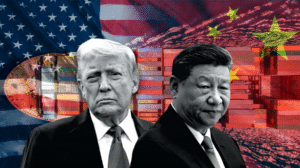
Although Trump’s remarks imply that he is willing to lower tariffs there is no precise timeframe for when this might occur. Additionally he has made it clear that formal talks are still in their early phases by saying he has no plans to meet with Chinese President Xi Jinping this week.
Will a fair trade agreement be reached between the US and China? This is still the crucial question.
Improved trade relations could result from a gradual reduction in tariffs if negotiations continue.
Businesses and consumers may be the ones who suffer the most if negotiations come to a standstill.
As Washington and Beijing negotiate the challenges of trade diplomacy all eyes are on them for the time being.
In conclusion
Trump’s readiness to reduce China tariffs could be a game-changer in the current trade war. The prospect of new talks gives investors and companies alike hope even though the path to a “fair deal” is still unclear.





